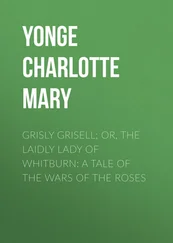William Forfar - The Wizard of West Penwith - A Tale of the Land's-End
Здесь есть возможность читать онлайн «William Forfar - The Wizard of West Penwith - A Tale of the Land's-End» — ознакомительный отрывок электронной книги совершенно бесплатно, а после прочтения отрывка купить полную версию. В некоторых случаях можно слушать аудио, скачать через торрент в формате fb2 и присутствует краткое содержание. Издательство: Иностранный паблик, Жанр: foreign_antique, foreign_prose, на английском языке. Описание произведения, (предисловие) а так же отзывы посетителей доступны на портале библиотеки ЛибКат.
- Название:The Wizard of West Penwith: A Tale of the Land's-End
- Автор:
- Издательство:Иностранный паблик
- Жанр:
- Год:неизвестен
- ISBN:нет данных
- Рейтинг книги:4 / 5. Голосов: 1
-
Избранное:Добавить в избранное
- Отзывы:
-
Ваша оценка:
- 80
- 1
- 2
- 3
- 4
- 5
The Wizard of West Penwith: A Tale of the Land's-End: краткое содержание, описание и аннотация
Предлагаем к чтению аннотацию, описание, краткое содержание или предисловие (зависит от того, что написал сам автор книги «The Wizard of West Penwith: A Tale of the Land's-End»). Если вы не нашли необходимую информацию о книге — напишите в комментариях, мы постараемся отыскать её.
The Wizard of West Penwith: A Tale of the Land's-End — читать онлайн ознакомительный отрывок
Ниже представлен текст книги, разбитый по страницам. Система сохранения места последней прочитанной страницы, позволяет с удобством читать онлайн бесплатно книгу «The Wizard of West Penwith: A Tale of the Land's-End», без необходимости каждый раз заново искать на чём Вы остановились. Поставьте закладку, и сможете в любой момент перейти на страницу, на которой закончили чтение.
Интервал:
Закладка:
There were three men kept at each of these stations, besides the officer, and they had a separate cabin appropriated to them, adjoining the principal one. Their duty was to attend upon the officer; hoist signals of flags and balls, to give notice of the approach of an enemy's ship; or to signal to English ships orders from head-quarters. And these signals could be communicated to and from London in a very short time, – although not so quickly, nor so accurately, as by the telegraph of the present day.
It was not long after two when Lieut. Fowler got down to Pendrea-house, where he found the squire with his watch in his hand.
"Half-an-hour is soon lost, my boy," said the old gentleman, as the lieutenant entered the drawing-room; "but where is your friend?"
"Hasn't Morley been here, sir?" asked Fowler, in some surprise.
"No," replied the squire, "I haven't seen him, – have you, girls?"
This last question was addressed to two young ladies, whom Lieut. Fowler now approached, and greeted as old acquaintances. They had seen nothing of Mr. Morley, they said, since the day before, when they had all walked to Lamorna Cove together.
"That's queer," said the squire; "but he's a stranger, and may have missed his way, – so we'll give him a quarter-of-an-hour's grace."
And during this quarter-of-an-hour – the most awkward one in the whole twenty-four hours – we will introduce the reader more formally than we have hitherto done, to Squire Pendray and his family, the present owner and occupiers of Pendrea-house.
The squire was a purse-proud man, who had made a good deal of money, no one knew how, and purchased Pendrea estate many years before. He wished to rank among the ancient aristocracy of the county, – and his wealth enabled him to mix with them, and to be on a seeming equality; but in those days ancestral pride was very strong, and those who could boast of an ancient aristocratic pedigree, however limited their means might be, looked down with contempt on the man of a day, who had nothing but his riches to recommend him. The rich man was tolerated and patronized for the sake of his wealth, but he was still looked down upon as an inferior. Squire Pendray was one of these. But he was as proud of his riches as they were of their pedigree, and so he did not see nor care for their patronizing airs; – besides, he, in his turn, patronized those whom he considered inferior to him in wealth, and he was satisfied. Some said he was connected with the smugglers, and that they brought goods up to some of his subterranean vaults, through a secret passage which led from a cavern at Lamorna Cove up to Pendrea-house. Where the entrance from the house to these subterranean vaults was, no one could tell but the squire himself.
Mrs. Pendray was a homely, good sort of woman, – kind and hospitable, and very much beloved by the poor of the parish, to whom she distributed her bounties with a liberal hand.
Her two daughters will require a more elaborate description; for they were considered the "belles" of the west, and were toasted by all the young men of the neighbourhood at their after-dinner orgies – a custom very prevalent at that period.
The elder of the two sisters, Matilda – or Maud, as she was generally called – was a brunette, with dark hair and eyes, and a profile so regular and perfect, that, when the countenance was still and in repose, as it were, you might, without a great stretch of imagination, have fancied it a piece of tinted sculpture, – but the slightest thing would rouse it into animation, and then the dark eyes would flash like a piece of polished steel when struck by the electric fluid. She wore her hair in bands, which contrasted well with her high intellectual forehead, and added dignity of expression to her handsome features. Her stature was lofty, and her form elegant and symmetrical; and when she walked across the room there was majesty in her step, as if her foot disdained the ground it trod upon. She delighted to wander out alone over the highest headlands, when the wind was raging with its wildest fury, and to stand and watch the foaming waves, as they surged and dashed against the perpendicular cliffs, until she was saturated with the spray and in danger of being blown over into the abyss beneath.
Blanche was as unlike her elder sister as it was possible for her to be. She was fair, and her beautiful auburn hair hung in graceful ringlets over her soft young cheeks, as if to hide her blushes, which the merest trifle would call forth. She was just seventeen. Her sister was four years older; but, in person and manners, you would think there was a greater difference of age between them. While Maud walked out to witness the storm in all its majesty, from those bold cliffs, Blanche would take some quiet book of poetry, and sit alone, and read, in the little room upstairs, which their mother, years ago, had set apart for her two daughters. And when the early spring brought soft and balmy sunshine, Blanche would take her book and wander out alone – not to the towering cliffs, and bold headlands, but along the sheltered paths which led down to Lamorna Cove, gathering wild flowers by the way. And there she would watch the rippling waves, as they came dancing in over the beautiful white sand, sparkling in the sunshine; and when her eyes were weary with watching the calm unruffled sea, she would sit beneath some sheltered rock, and read, and weep over some sad tale until her eyes grew dim, and then would rise again and search for some rare shell, or tiny piece of seaweed, she had read or heard of, as being found at Lamorna Cove.
Lieut. Fowler, whose occupation caused him to wander everywhere along the coast, in search of smugglers, or enemies' ships, would often come suddenly on one or other of the sisters, and would then escort them home and dine with the old squire, who liked him, and was fond of having him there to while away an afternoon in social chat; for the lieutenant, although not more than thirty years of age, had seen a little service, and could tell tales that even Maud would sit and listen to. But, for the gentle Blanche, those tales of hardship and suffering, and deeds of daring, and hairbreadth escapes, had a deeper charm than she dared to confess even to herself. He was not a handsome man by any means, but he had a fine noble bearing, and courage and daring were marked in his broad forehead. He was sometimes the only person they saw for weeks, and, therefore, the two sisters enjoyed his society, and were always glad when their papa asked him to dine. He admired them both, and not being in a hurry to marry, or having been knocked about too much in the world to have time to think of it, he did not see the danger he was daily and hourly incurring by being on such intimate terms of friendship with these two fascinating girls.
The old squire was very fond of his children, indulging them in most of their caprices, and he did not see any danger or impropriety in allowing them to be on intimate terms of friendship with a man whom he himself liked so well, and who was, in fact, so necessary in assisting him to pass away his time, with pleasure and comfort, in that dull out-of-the-way place. It had also been a great pleasure to the squire's family to receive the lieutenant's friend, Frederick Morley, at their house; for he, too, was a very gentlemanly man, had seen a good deal of the world, and could tell them of foreign scenes and manners, which very much delighted them all. He was more romantic and impressible than his friend. It was therefore evident that Miss Pendray preferred his society to that of the more matter-of-fact Lieut. Fowler, and would take him to her favourite wild cliffs, and point out the beauties she saw in them, to which he listened with marked attention, entering into her feelings, and admiring her pursuits, more than any other man she had been accustomed to meet; but still there was something sad in his manner, sometimes, which she could not account for. It seemed to her as if he had met with some heavy affliction in days gone by. This thought was impressed on her more than ever to-day; for he had not arrived in time for dinner, – so they sat down without him. As the day passed slowly on, and he did not appear, it made the whole family think the more of him. After dinner, Miss Pendray asked Mr. Fowler if there was anything pressing on his friend's mind, as, she said, she had often observed him sad and thoughtful, when all had been merry and cheerful around him. Now that the subject was mentioned, everyone seemed to have observed the same; and they urged the lieutenant to tell them – if he knew, and it was not a secret which he felt bound to keep – what it was that made the young soldier look so sad at times when others were gay.
Читать дальшеИнтервал:
Закладка:
Похожие книги на «The Wizard of West Penwith: A Tale of the Land's-End»
Представляем Вашему вниманию похожие книги на «The Wizard of West Penwith: A Tale of the Land's-End» списком для выбора. Мы отобрали схожую по названию и смыслу литературу в надежде предоставить читателям больше вариантов отыскать новые, интересные, ещё непрочитанные произведения.
Обсуждение, отзывы о книге «The Wizard of West Penwith: A Tale of the Land's-End» и просто собственные мнения читателей. Оставьте ваши комментарии, напишите, что Вы думаете о произведении, его смысле или главных героях. Укажите что конкретно понравилось, а что нет, и почему Вы так считаете.












